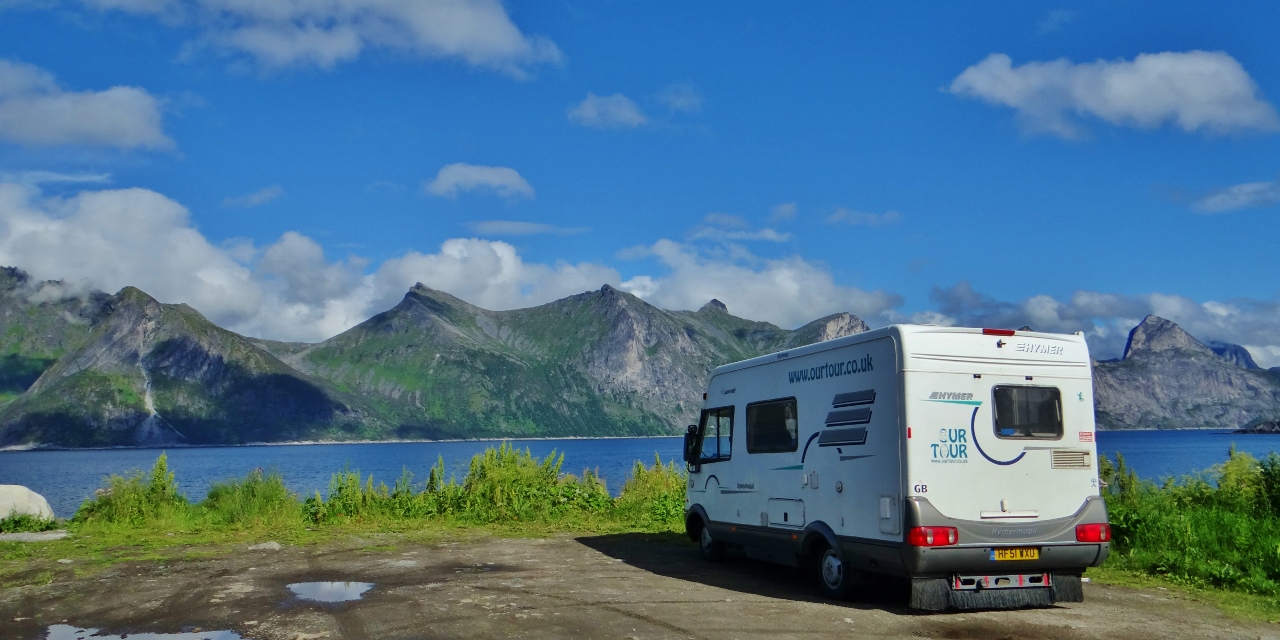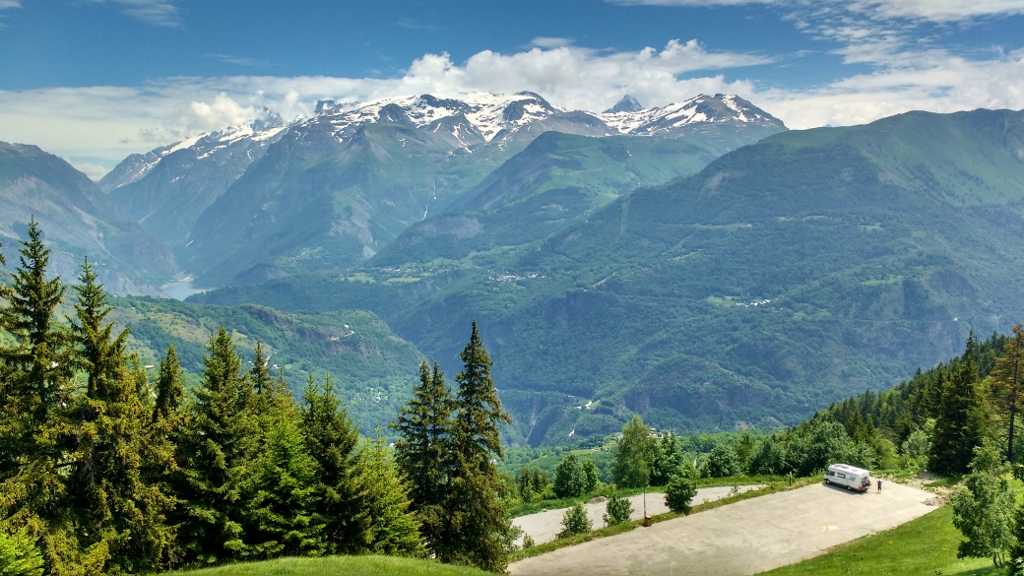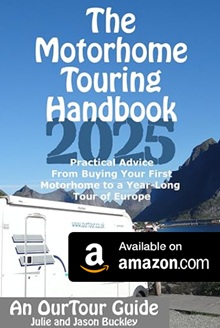Motorhomes: Investment Disasters…
This blog post was originally written for a sister website called The Matrix Experiment. We set up the site in January 2017 to pass on financial hints and tips we’d learned as we became financially free. The Matrix Experiment site no longer exists, so we’ve incorporated this financial information here.
I’ve been meaning to write some more financial education stuff on the here for a few months, and was finally spurred into action by an article I read the other day, which made me rather mad.
In this article, a motorhome dealer suggested that a family of four buying a motorhome was a sound financial strategy, as it would save money on family holidays. This annoyed me enough to get my finger out, and hammer at a poor, unsuspecting keyboard with it. If you’re not already financially free (or even if you are), PLEASE don’t kid yourself: unless you can use it for months each year, or use it to live in, a motorhome is going to do its utmost best to render you poor.
Back to that article. The author wrote it, I’m sure, based on what they thought to be clear logic. Sadly many people would read it without question and feel it gave them the thumbs-up to buy a motorhome, as it would save them cash. ARGGGGHHHHH! It won’t save you money, it will burn your cash, so much of it, it’s seriously unfunny. And here’s why…
The Motorhome Dealer’s Case
The article (“How Motorhomes Make Holiday Savings”) made their case for buying a motorhome using the following points (I’m not linking to the article as I’ve no interest in harassing the dealer, just the poor logic and financial thinking in this particular piece of writing):
- An average two week peak season family holiday costs £4700 before spending money, from an independent survey (and they reference the website of a money lender as having done this ‘research’)
- Over ten years this family would therefore spend over £50,000 (including inflation), before costs for eating out
- The article goes on to say you’re likely to be having a few weekends away, including expensive eating out and snacks (plus some highly dubious speculation about foreign exchange rates post Brexit) could cost you £100,000 over ten years
They then go on to make the case for buying a motorhome, using these key points:
- A reasonable middle-ground cost of a motorhome to be £40,000, which will depreciate to £20,000 after ten years
- The £4700 package holiday cost should be reduced to around £1000 per year by using the motorhome
- By using the motorhome to store and prepare your own food, eating costs will add to the ‘saving’
- Towards the end they revise down the £100,000 package holiday costs to “£60,000 to £70,000”
- And then boom – it all makes sense – that £40,000 for the motorhome has been saved up by avoided costs on holidays, plus you’ve an asset worth £20,000
With this logic, it’s a no brainer to shell out £40,000 of your hard earned cash. Rush down to your nearest dealer and sign on the dotted line folks. Hmmm. But what’s that I can see in my peripheral vision as I grasp the biro of doom? Oh yes, it’s reality.
The Reality – What that Motorhome will REALLY Cost You
OK, let’s put emotion to one side for the moment, using our old trusty impartial friend: the spreadsheet. I’m ignoring some of the outrageous suggestions above, like the fact Brexit might increase overseas costs by 10% to 20% is just fool’s talk – Euro to Pound rates could go either way or not change at all. I’m also assuming the buyer would have £40,000 in cash, as no-one in their right mind would take out a loan to buy a motorhome. If the buyer used finance, the dealer’s case gets even more torpedoed.
Here are the flaw’s in the dealer’s logic:
- They don’t include any running costs for the motorhome – MOT, servicing, insurance, breakdown cover, storage, consumables, repairs, the costs to buy all the stuff that goes in it. I’ll hazard a very rough and ready guess at about £1500 a year for these.
- They don’t consider the fact you could have placed that £40,000 in an INVESTMENT instead of a DEPRECIATING ASSET. If you could get a 7% return on £40,000, you’d be pulling in £2800 a year with that money. No, the banks won’t give you this, but it’s not an unreasonable long term return on the FTSE 100, or S&P 500. I’ll go into this another time.
Taking these assumptions, I’m reckoning at the end of ten years the motorhome will have cost you £75,000 just to own it. Add in the article’s estimated £1000 a year for food and the like, and your holiday costs with the motorhome are up to over £85,000.
The Telegraph here suggests various two weeks peak season holidays for a family of four can be had for between £1000 and £2000. I’ve no kids, so I have no idea how accurate this is, but by my reckoning, with inflation running at 3%, you’d need to be getting through over £7000 a year on package holidays and breaks to make that £40,000 motorhome worthwhile.
So, What Are Your Options?
Let’s assume you really wanted to be taking your family on motorhome breaks, but don’t much fancy shelling out tens of thousands of your hard-earned more than you have to. What could you do?
Option 1: Buy a motorhome, just don’t spend £40,000 on a something which you’ll use for a few weeks a year. This is BONKERS. Autotrader.co.uk currently lists 248 four, five and six berth motorhomes for between £16,000 and £20,000. At £16,000, the ten year cost to own the motorhome comes down to £40,000, which equates to about £3500 a year of package holidays.
Option 2: Rent a motorhome. I know, most everyone thinks renting stuff is bad, as you don’t own the asset. They’re wrong. In 60 seconds I’ve just got a quote for a 2 week mid July six berth motorhome rent in the UK for £1,722. Over ten years with 3% inflation those two weeks a year would come to about £20,000. Which would leave you rather a lot of cash for other breaks compared with the £75,000 dealer option, or even if you’d bought a motorhome for half the price they suggest.
Option 3: Take your soft, floppy emotional hat off, and pop on your ‘Financial Freedom’ hard hat. Use your family car, and take holidays across the UK and Europe in gites, tents, B&Bs. Invest the money you would have seen incinerated by that motorhome, and feel the incredible joy at seeing money ROLL IN to your family fun fund, rather than wondering why on earth you feel so skint.
The Message
What I’m trying to get across with this article:
- Don’t let ANYONE (me included) dictate what’s a good way for you to spend your money. Do your own thinking. Spreadsheets are great for big spend decision like this, they strip away the emotion and show you the nasty-looking bare bones of the thing.
- Make no assumptions about RENTING. Sometimes it makes financial sense, other times it doesn’t. Do the sums, and work it out for your particular situation.
- This isn’t just about motorhomes. It’s about ANY BIG SPENDS you shell out for, on things which cost you money rather than earning you money. Boats are another good example, as are motorbikes, and even houses. In most circumstances these AREN’T INVESTMENTS. They are selfish swines, they take, take, take, and never give back.
If this post has you curious, you can read more about what we have learned on our journey to financial freedom in the Money section of this blog. I’m 44 and I don’t have a job you see, I don’t need one, as even with some very basic investment knowledge and lifestyle changes, my wife and I have enough money coming our way through investments that work has become optional. I’d like to help you do the same, and in return to learn more from you about the journey to, and into, financial freedom.
Cheers, Jay
P.S. I love motorhomes. I’ve travelled across 35 countries in them, slept in 798 different places from the Arctic to the Sahara, and had a pretty incredible three years (and counting) of freedom. I can highly recommend them as a way to travel, but for a family of four who can only use them for 2 or 3 weeks of the year and a few weekends – they’re a financial disaster.





